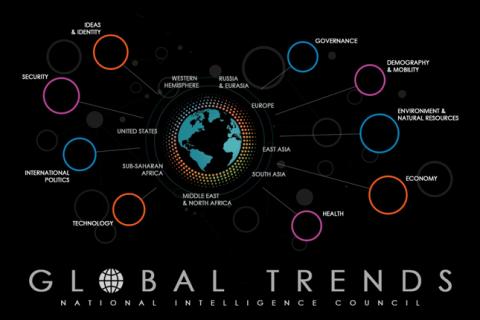US intelligence warns 2030s will be "chaotic and unstable"
The last version of the document, published in 2017, imagined there would be a global pandemic in the early 2020s leading to reduced travel to curb its spread. This prescient prediction appears to have become a reality in the form of Covid-19, which has claimed almost three million lives worldwide.
The document focuses heavily on the impact of the pandemic, calling it the 'most significant, singular global disruption since World War II, with health, economic, political, and security implications that will ripple for years to come.' 'COVID-19 has shaken long-held assumptions about resilience and adaptation and created new uncertainties about the economy, governance, geopolitics, and technology,' the report says.
The document finds cause for concern in virtually all aspects of life. It warns, for instance, that the effects of climate change are likely to worsen the problem of food and water insecurity in poor countries and hasten global migration.
It also states that although health and education have improved in recent decades it will be hard to maintain such progress because of 'headwinds' from the pandemic, an ageing population and 'potentially slower global economic growth.'
Advances in technology have the potential to address problems including climate change and disease, but can also provoke new tensions, the report says. 'State and nonstate rivals will vie for leadership and dominance in science and technology with potentially cascading risks and implications for economic, military, and societal security,' the report says.
The report also warns of eroding trust in government and institutions and of a 'trust gap' between the public and the better informed and educated parts of society.
Joe Pinkstone

